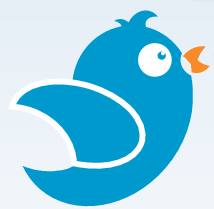Published on the 10/06/2014 | Written by Paul Brislen

Paul Brislen describes the moment Twitter started making sense and why he tries not to deal with companies that don’t tweet…
I love Twitter. As a former reporter, it’s the replacement news feed that I’d been looking for.
It wasn’t always that way, however. When I first heard of Twitter I wasn’t that fussed. Sounds like ICQ or any of the other instant messaging platforms, I thought. I’d used ICQ extensively in a distributed newsroom setting so we could all stay in touch and because we all used it for everything, even across-the-room chat, those who worked remotely were included in the conversation.
But yet another version of that? “Meh”, I thought. Of course, Twitter differs fundamentally from instant message platforms and it wasn’t until someone re-tweeted a photo of a bunch of people standing on the wing of a plane that was floating in the Hudson River in New York that I realised this was the news feed I’d been dreaming of.
Someone on a rescue boat had taken a photo and posted it straight to Twitter. It was at least half an hour before the New Zealand news websites started carrying ‘breaking news’ banners about a plane crashing in New York, but I knew they were all OK and I had proof.
It was a seminal moment, but Twitter doesn’t just allow me to see what other people are doing right this second – far from it. It’s also my new favourite search engine and the single best way to get in touch with a corporation.
I’ll give you an example – I went to Hong Kong for business about two years ago and when I got to the hotel I couldn’t find my credit card. “Great”, I thought. “I’ve left it in the chemist at the airport in Auckland. Brilliant.”
I called Kiwibank, but of course it was after hours so nobody could take my call. I wanted the card blocked until I figured out where it was, so I tweeted and Kiwibank came straight back – yes, they could help. They called me, we verified identities and the card was blocked.
I couldn’t have done that without Twitter and these days I try not to deal with companies that don’t have a Twitter account. All too often companies seem to put barriers in the way of doing business with them – Twitter cuts through all of the rigmarole in a heartbeat.
It’s also incredibly fast and closes the gap between customer and CEO from a few weeks to mere seconds. In the old days you’d get poor service, you’d demand to speak with a supervisor, you’d be fobbed off and ultimately you’d writea letter. In due course that would find its way to someone senior and you’d get a response, or not if they didn’t think it worth the bother.
These days that’s all gone. Responses have to be immediate and clearly thought out or they become the stuff of legend. Dominos Pizza, United Airlines, Comcast and WalMart have all been caught with their social media pants down in recent years, and closer to home we’ve seen local companies also try to bluff and bluster their way through what is, at its heart, an exercise in customer relationship management.
Social media puts consumers in the driver’s seat. No more interactive voice recognition, or hold music. No more fobbing off and form letters that go nowhere. Any company that ignores social media is ignoring its customers and that’s a business that I don’t want to have anything to do with.
Years ago I asked my dentist about flossing. I’m from the UK and we didn’t have such things when I was a kid. “Which teeth do I floss?” I asked. “Only the ones you want to keep,” he said. Social media is like that. Which customers should you talk to? Only the ones you want to keep.
Paul Brislen was the Telecommunication Users Association of New Zealand (TUANZ) chief executive. He left the post in May 2014. Craig Young will be his replacement.
































